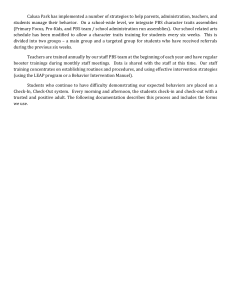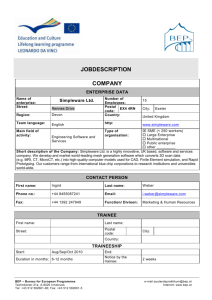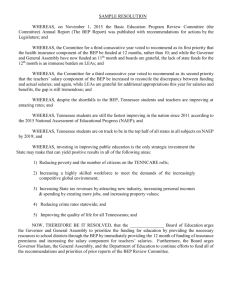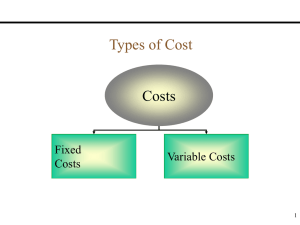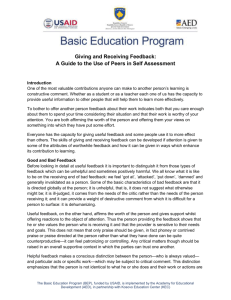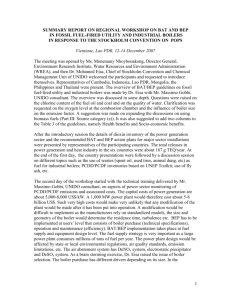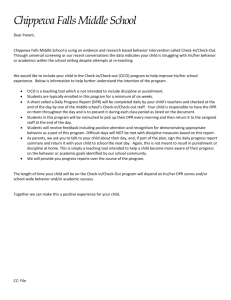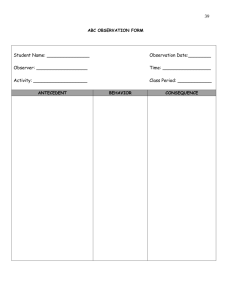Frequently Asked Questions
advertisement
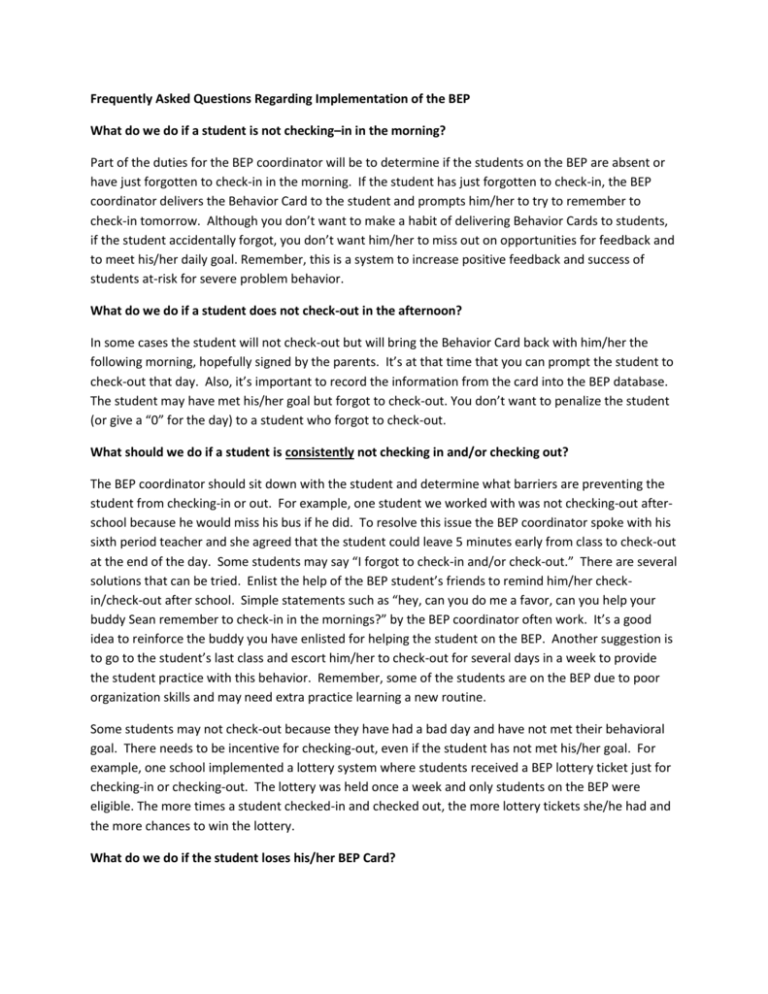
Frequently Asked Questions Regarding Implementation of the BEP What do we do if a student is not checking–in in the morning? Part of the duties for the BEP coordinator will be to determine if the students on the BEP are absent or have just forgotten to check-in in the morning. If the student has just forgotten to check-in, the BEP coordinator delivers the Behavior Card to the student and prompts him/her to try to remember to check-in tomorrow. Although you don’t want to make a habit of delivering Behavior Cards to students, if the student accidentally forgot, you don’t want him/her to miss out on opportunities for feedback and to meet his/her daily goal. Remember, this is a system to increase positive feedback and success of students at-risk for severe problem behavior. What do we do if a student does not check-out in the afternoon? In some cases the student will not check-out but will bring the Behavior Card back with him/her the following morning, hopefully signed by the parents. It’s at that time that you can prompt the student to check-out that day. Also, it’s important to record the information from the card into the BEP database. The student may have met his/her goal but forgot to check-out. You don’t want to penalize the student (or give a “0” for the day) to a student who forgot to check-out. What should we do if a student is consistently not checking in and/or checking out? The BEP coordinator should sit down with the student and determine what barriers are preventing the student from checking-in or out. For example, one student we worked with was not checking-out afterschool because he would miss his bus if he did. To resolve this issue the BEP coordinator spoke with his sixth period teacher and she agreed that the student could leave 5 minutes early from class to check-out at the end of the day. Some students may say “I forgot to check-in and/or check-out.” There are several solutions that can be tried. Enlist the help of the BEP student’s friends to remind him/her checkin/check-out after school. Simple statements such as “hey, can you do me a favor, can you help your buddy Sean remember to check-in in the mornings?” by the BEP coordinator often work. It’s a good idea to reinforce the buddy you have enlisted for helping the student on the BEP. Another suggestion is to go to the student’s last class and escort him/her to check-out for several days in a week to provide the student practice with this behavior. Remember, some of the students are on the BEP due to poor organization skills and may need extra practice learning a new routine. Some students may not check-out because they have had a bad day and have not met their behavioral goal. There needs to be incentive for checking-out, even if the student has not met his/her goal. For example, one school implemented a lottery system where students received a BEP lottery ticket just for checking-in or checking-out. The lottery was held once a week and only students on the BEP were eligible. The more times a student checked-in and checked out, the more lottery tickets she/he had and the more chances to win the lottery. What do we do if the student loses his/her BEP Card? One of the responsibilities for the student on the BEP includes carrying the card from class to class, teacher to teacher, or in the case of elementary school students, from setting to setting. We recommend teaching the students to get another card as soon as they realize they have lost it. That way, although they may have lost some points toward their goal by losing the card, they have not blown the whole day. They can receive feedback on their new card and continue to receive positive feedback throughout the day. Students may also lose cards if they don’t find being on the BEP helpful and rewarding. For those students, troubleshoot ways to improve the program. Often this involves asking them the types of rewards they are interested in working for (e.g., baseball cap). Some students may “lose” their Behavior Card if they have had a bad day and are afraid to bring the Behavior Card home to their parents. As sad as it may sound, there have been parents who punish students severely for having a “bad day” at school. In these situations we have either encouraged the parents to use the program positively, or, we have had students not take their cards home as part of the program. We cannot emphasize enough that this needs to be a positive program, one the students enjoy participating in. If the student gets into more trouble by being on the BEP, he/she is going to be less likely to participate. What if the student is consistently participating in the BEP and his/her behavior gets worse? It is expected that within a couple weeks, students’ behavior should improve on the BEP. For students who are on the Academic Tracking Program, it may take longer to notice changes in grades, but there should be an increase in organization, homework completion, etc. Students whose behavior gets worse may need a more individualized intervention. Additional assessment data can be taken using functional assessment procedures. It’s likely that classroom observations will be included in when gathering information. Once information is gathered, it is used to develop an individualized behavior support plan. For more information on Functional Behavioral Assessment and Behavior Support Planning, see Crone and Horner (?).
